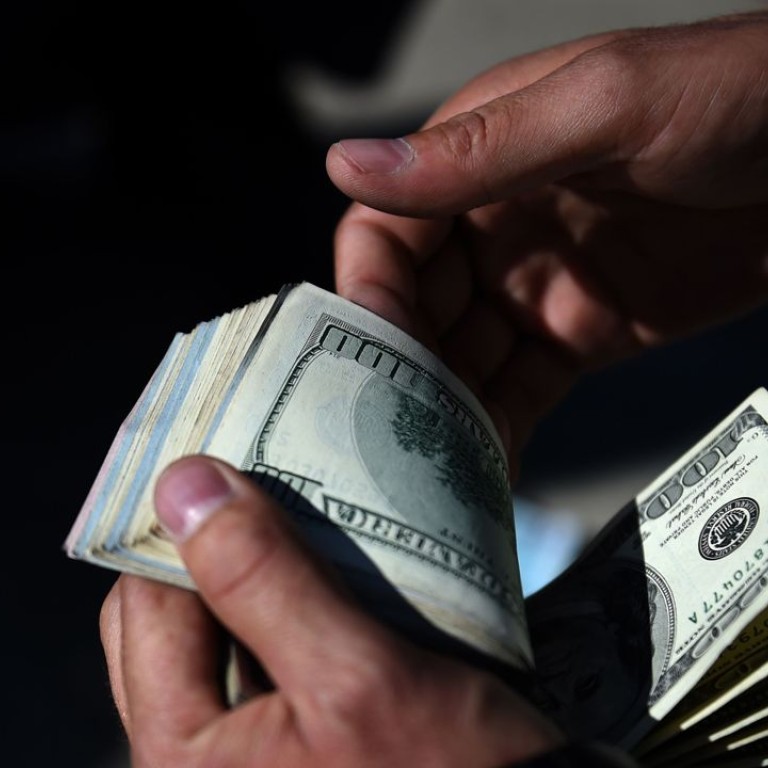
Venture capital sector heading back to earth
First financing and exits both down
The venture capital sector is heading back to earth. The big question for the new year is how bumpy its landing might be.
A new set of data indicates that key segments in venture capital – the business of funding start-up companies – will be down sharply for 2015, a sign that the dramatic run-up in start-up valuations is peaking and the funding of new ones is tapering off.
“There are a lot of indicators that we’ve reached the peak of the VC investment cycle,” said Daniel Cook, an analyst at New York research firm PitchBook Data.
The number of “first financings”, the very first round of professional funding for nascent start-ups beyond money from family or friends, stood at only 1,983 financing deals as of December 1, compared with 3,368 for all of 2014, according to PitchBook. The total dollar amount for first financings figures to be flat or down: US$6.91 billion recorded through December 1 compared with US$7.5 billion in 2014.
Meanwhile, money reaped through so-called exits – via the sale of start-ups to another company or through an initial public offering of stock – is projected at about US$64 billion on 860 deals in 2015, compared with US$93.77 billion on 994 deals in 2014, according to a Pitchbook analysis.
The drop in first financing “indicates that the future crop of VC-backed companies will be weaker than we’re used to seeing”, Cook said. Plus, he said, “Exits are down dramatically, and the public markets are in limbo.”
A little bit of the lustre has come off a lot of the unicorns
Demand for VC funds, however, continues strong, with investors pouring in nearly US$37 billion in 2015, up from US$34 billion in 2014, to get a slice of later-stage start-ups such as Uber and Snapchat.
Still, the slowdown for the youngest companies and waning exits indicate a general cooling, analysts said. Among the causes: the lacklustre performance of major public stock markets, which provide a guidepost for valuations and an important market for venture capital firms to sell their holdings and exit their positions. Meanwhile, fundamentals in technology, a key sector among VC firms, are weakening.
John Lonski, chief economist for Moody’s Analytics, said revenue for software and services was down 2.4 per cent year on year in the third quarter while even once-booming tech hardware saw sales rise only 3.6 per cent. “Those numbers are not exactly barnburners,” he said.
Investors are pulling back on riskier investments across the financial spectrum, Lonski said, noting that borrowers in the high-yield corporate bond market, often seen as a proxy for venture capital and other risky markets, have been forced to pay ever-higher interest rates in recent months.
Steven Kaplan, a finance professor at the University of Chicago, said 2014 and 2015 marked a “frothy” period of start-up valuations that was bound to taper off. He said the rapid rise in the number of start-ups valued at US$1 billion or more, known as unicorns, was coming to an end for the time being.
“A little bit of the lustre has come off a lot of the unicorns,” Kaplan said. “A lot of them have had trouble maintaining their values.”
Some observers see a softening in the VC sector as posing risks to future innovation.
“It’s certainly on the decline, and it’s a not-so virtuous cycle,” Mark Cuban, who made his fortune in the dot-com era with broadcast.com, said. “Fewer exits mean less money to invest in new deals.”
But while most observers take a cautious approach to the sector for now, few foresee a calamitous decline approaching the dot-com crash of 2000. Pitchbook’s Cook, for instance, says it’s more likely that the sector will slip back 2013 levels, when VC firms raised about US$24 billion from investors compared with the US$37 billion expected to be raised in 2015.
And some say it’s still too early even to call a peak in the VC cycle. A report by PriceWaterhouse Coopers and the National Venture Capital Association notes that the US$47.2 billion invested by VC firms in start-ups in the first three quarters of 2015 was higher than the full-year totals for 17 of the past 20 years, indicating continued momentum heading into the last quarter of 2015.
What’s more, the report notes the 1,070 individual funding deals recorded in the third quarter, although 11 per cent below the second-quarter figure, was roughly in line with the number of deals per quarter going back to 2011.
Los Angeles Times

